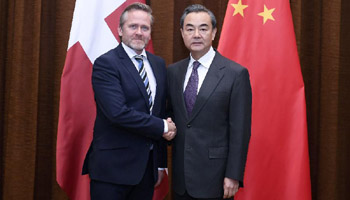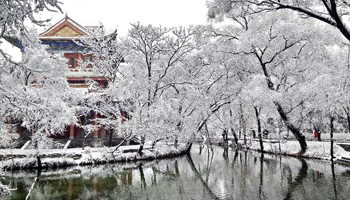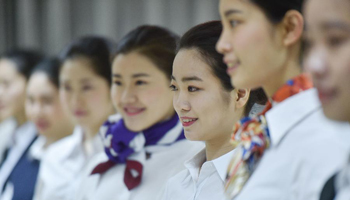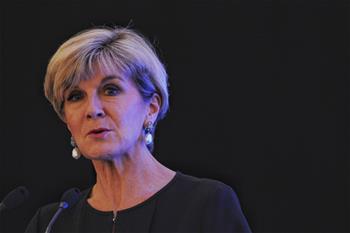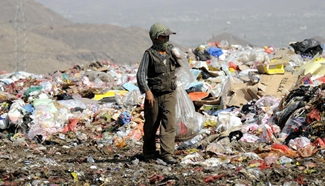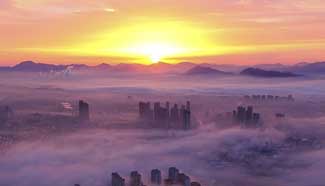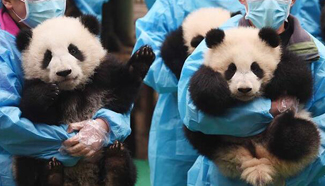BEIJING, March 13 (Xinhua) -- Can China do it? This is the crucial question for the world's biggest and boldest economic, political and social experiment.
At the core of understanding the country's prospects is the governance philosophy of its leader, Xi Jinping.
Xi is leading more than 1.3 billion people on the march toward the Chinese Dream -- an end to the worst kinds of poverty, and the rejuvenation of a nation that has already made astonishing progress in creating prosperity.
The 63-year-old reformer has brought his own thinking to bear on problems that will be faced down the road, especially after a year of tumultuous world events.
With the concerns of the people his first and foremost concern, Xi's experience, commitment, determination and ability to govern and lead have become something of a rarity on the global political stage.
Later this year, the 19th National Congress of the Communist Party of China (CPC) will elect new leadership for another five-year term, the crunch period for Xi's vision of a well-off nation by the Party's 100th anniversary.
By 2020, China's gross domestic product is expected to exceed 90 trillion yuan (13 trillion U.S. dollars). There should be a middle-class population of about 400 million in the country by then, a huge market for the world.
The goal is fast approaching, and will only be met if officials at all levels can align their thinking with that of the central leadership, and act according to the "four comprehensives" raised by Xi: the cornerstones of prosperity, reform, rule of law and strict Party governance. The strategy aims to lead the country to modernization and a standing at the center of the world stage.
This is China's own story, one neither copied from other countries nor imposed on any.
At the annual "Two Sessions" of the national legislature and political advisory body in Beijing this month, Xi expressed his confidence.
"As long as we gather the wisdom and strength of more than 1.3 billion Chinese people, there can be no limit to the success of our cause," he said.
NEW THOUGHTS, NEW ACTIONS
From being the youthful head of an impoverished village in northwest China via Party chief in the nation's advanced eastern regions to leader of the nation, Xi has shown deep understanding of state governance, evident in economic and social reform, foreign affairs and military transformation.
In the economic sphere, he has led China to achieve remarkable growth, even though other major economies are faltering. China now contributes to over 30 percent of world economic growth.
Xi calls the current phase the "new normal," from which an economy is emerging that is more sustainable and inclusive.
To ensure the success of this rebalancing, he has put forward supply-side structural reform as the cure.
Fundamentally different from the supply-side economics of the West, Xi's policy means taking a harsh stance against outdated and inefficient industries and putting in their places new, innovative systems of work and production which will neither destroy the environment nor succumb when the next global financial crisis hits.
China hopes to increase its GDP by about 6.5 percent this year. At this rate, the nation will generate more output than it did during the days of double-digit growth.
Xi is at the wheel of a reform juggernaut, revitalizing and renewing almost every aspect of the economy and society, from the financial sector to health care. Changing the lives of hundreds of millions of people means the abandonment of what is no longer relevant, including the one-child policy and "re-education through labor," a way of dealing with minor offenders that was introduced more than half a century ago.
Xi emphasizes the rule of law and checks on power, as seen in his decision to create a national supervision commission. Lawmakers are compiling a civil code to better protect people's rights.
His campaign against corruption, a threat he warned could destroy the Party and bring about the downfall of the state, has gained "crushing momentum." Since the 18th CPC National Congress, at least 240 senior officials and more than 1 million lower-level officials have been investigated.
As Chinese business people, tourists and students reach almost every corner of the globe, Xi sees China as not only a beneficiary of globalization, but a contributor to it. He has visited around 50 countries as head of state, pursuing his mission to build "a community of shared future."
His strong defense of free trade and warnings against protectionism -- "locking oneself in a dark room" -- have surprised and delighted observers.
The China-U.S. trade relationship now "supports roughly 2.6 million jobs in the United States across a range of industries," according to a January report released by the U.S.-China Business Council based in Washington,D.C.
The Belt and Road Initiative proposed by Xi in 2013 is expected to connect Asia with Europe and Africa. In three years, Chinese businesses have helped build 56 economic and trade cooperation zones in 20 countries along the Belt and Road, with total investment exceeding 18 billion U.S. dollars. They have helped generate more than 1 billion U.S. dollars in tax revenue and create more than 160,000 jobs for host countries.
China's commitment to the Paris agreement on climate change is comforting and unshakable.
CODE OF SUCCESS
Making a great country requires strong and competent leadership devoted to the fundamental interests of the people.
"China's most important successes rest on strategic planning and decision-making by the central leadership," said Zhang Weiwei, director of the Institute of China Studies at Fudan University.
Unlike Western democracies, which seem increasingly obsessed by showmanship and short-term elections, China's leadership has a long-term target and is more inclined to plan for the next generation and beyond. Once the Chinese leadership makes a blueprint, it sees it through to completion.
Poverty relief is one such example. It has been included in the work plans of the Chinese leadership of each generation for decades.
Fundamental to a well-off society, poverty alleviation gave better lives to 55 million Chinese people in 2013-2016, a number greater than the population of the Republic of Korea. The government of China has boldly pledged to eradicate poverty by 2020.
It is up to local authorities to make sure that every family has an achievable plan to cast off poverty. Xi picked up a farmer's budget on a visit to a village in Hebei Province in January and showed him how he could increase income to give his family a better life.
Poverty alleviation is not the only matter to hand. Time is short. Speed and efficiency are of the essence. When working in the eastern Chinese city of Fuzhou, Xi reminded officials of their duty to "ma shang jiu ban" -- take immediate action -- the working style that the president wants to see right across the country.
China's system of governance remains resilient and robust because of how it selects and mobilizes officials. A cadre can be promoted only after he or she has served at various grassroots posts and acquired enough experience. How many jobs has an official created? Where are the tangible results regarding economic and social development? Is the environment cleaner or more polluted? These key factors are considered for any promotion. Those found to be ineffective are demoted and, in some cases, punished.
The latest five-year plan has made local officials accountable for the environmental damage they cause, even if it is discovered after they have left office.
China stresses the unity of Party leadership, people being the masters of the country and the rule of law. The Chinese approach has shown its advantage over the so-called "Western model," Zhang said.
MAKING HISTORY
The "Two Sessions," among China's most important political events, are poised to support the next round of reform. Thousands of lawmakers and political advisors have raised suggestions on development. Crucially, the sessions have gathered a national consensus to unite more closely around the CPC Central Committee with Xi as the core.
"Xi's core status came through his leadership in advancing the Party's great cause," said professor Dai Yanjun with the Party School of the CPC Central Committee.
The largest modernization movement in human history has a political party with 88 million members united around a core leader, bringing better lives to more than 1.3 billion people.
This common dream not only benefits the Chinese, but also the whole world.
The real test, however, lies ahead.
Xi and his colleagues are facing a number of challenges. Few developing countries, for example, have avoided the "middle-income trap."
Daunting as the difficulties may be, in Xi's opinion, "History is created by the brave."





